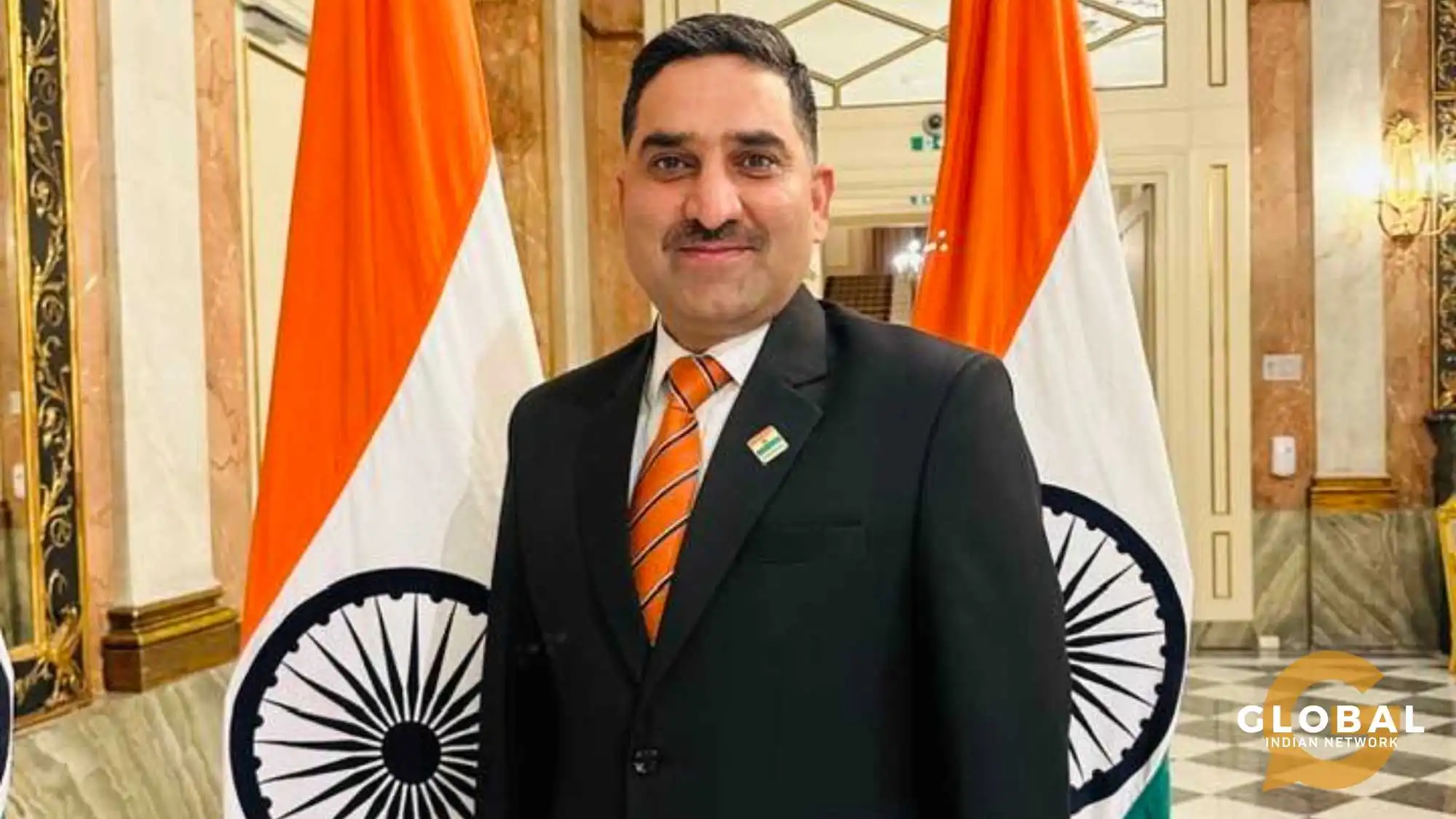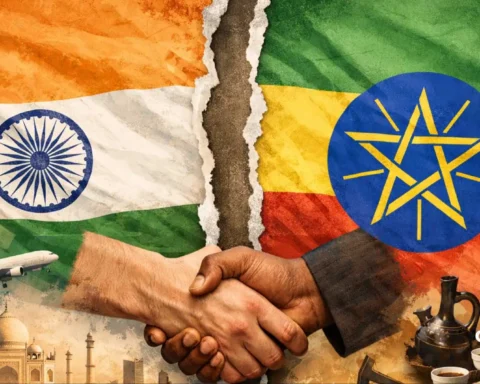Imagine a desert journey at 11 to attend school every day! Born to a poor family, that is what Amararam Gurjar went through. Pali, Rajasthan, in India, was his birthplace. Economic difficulties were part and parcel of the rural family. It was the norm for children to follow in the footsteps of their parents when it came to work. Amararam worked as a shepherd, herding goats, and endured the harsh realities of life.
Amararam was built differently. His spirit knew no bounds. He knew that education would take him out of the rut he was in. So barefoot, it was the everyday journey to school under the scorching heat of 50 degrees. He walked 5 km daily in the desert with 90 other students and one teacher. His days were spent under a tree willingly to pursue knowledge. Under such determination, physical and social barriers fell away from his mind.
Despite being overlooked, he changed his fate and found small jobs to fund his secondary school education and beyond. In 1993, he graduated by topping the school. His father did not encourage his primary dream of becoming an engineer due to financial constraints. He ended up doing a B.A. and worked as a teacher, a police officer, and a station master in Rajasthan.
His determination to succeed in life urged him to take the path of civil service, a coveted position. Reading was very dear to him. The biography of Abraham Lincoln inspired him. The story of Lincoln, a son from a poor family, rose to the echelons of the American presidency. This nurtured Amararam’s ambition to move forward despite great obstacles.

Civil Service (UPSC)
Those days, cracking the Union Public Service Commission (UPSC) examination was the goal of many aspirants. Despite facing challenges such as sulphur poisoning and nepotism, Gurjar studied 17 hours a day for 50 days to prepare for the exam. Studies with undiluted focus helped him move ahead with his dream. Manual labour daily made him just enough to survive in the existential sense.
Amararam earned a prestigious position in the Indian Foreign Service (IFS) in 2008. It is a story of inspiration to others who are of humble beginnings. Not only did it pave the way to serve the nation, but it also ensured a stable career. Amararam believes that hard work will fetch the fruits of success.
Contributions of Amararam Gurjar
Gurjar’s early years were focused on acquiring specialized training in foreign relations and developing skills relevant to international diplomacy. As the Deputy Chief of Mission at the Indian Embassy in Italy, he significantly enhanced diplomatic ties between India and Italy, promoting cooperation in trade, culture, and technology.
Gurjar was Deputy Secretary for Central Europe at the MEA, managing diplomatic relations and policy-making regarding Central European countries. Since January 2021, he has served as the Director for East and South Africa (E&SA) in the Ministry of External Affairs (MEA) of India.
Gurjar is key in India’s diplomatic engagement, enhancing bilateral relations with the East and other countries. He engages in dialogue with foreign diplomats and participates in international forums to advocate for India’s positions on key issues. Under his leadership, the MEA strengthens economic partnerships, negotiates trade agreements, and facilitates investments, aligning with India’s goals of self-reliance and sustainable development.
Gurjar’s work focuses on regional stability initiatives, such as counter-terrorism efforts and cooperation on transnational issues like climate change and public health. He engages with regional partners to build a cooperative framework for security and stability. Gurjar also promotes cultural diplomacy, strengthening ties with other nations by promoting Indian culture abroad and facilitating connections.
Gurjar represents India’s interests globally, advocating for sustainable development, climate action, and food security. He participates in initiatives like the International Year of Millets, promoting agricultural sustainability and nutrition.
His career reflects significant contributions both domestically and internationally, enhancing India’s global diplomatic outreach and cooperation.
Future Goals
Amararam Gurjar’s future goals in his position as Director for East and South Africa (E&SA) at the Ministry of External Affairs (MEA) include several strategic objectives to enhance India’s diplomatic and economic presence in the region.
Gurjar aims to strengthen India’s diplomatic ties with East and South Africa by enhancing bilateral engagements and participating in regional summits. It also aims to promote economic cooperation through trade agreements and investment initiatives, focusing on sectors like technology, agriculture, and renewable energy.
Gurjar’s role involves collaborating with African nations to address regional issues like security, climate change, and public health. He also plans to enhance cultural ties through educational exchanges, cultural festivals, and people-to-people connections, promoting Indian culture and values.
Gurjar is expected to advocate for global issues like sustainable development and climate action, aligning with India’s commitment to global cooperation. He will also build strategic partnerships with regional players, multilateral organizations, and regional blocs to enhance India’s influence and foster cooperative relationships.

Conclusion
Amararam Gurjar’s story is not just an individual success but an inspiring one for millions in rural India. It demonstrates that with determination and grit, one can overcome poverty and limited resources, inspiring aspiring civil servants and students to pursue their dreams and highlighting resilience in adversity.
India is a developing nation with high growth potential and seemingly unsurmountable challenges. Governance has huge implications in India, where corruption, lackadaisical attitudes, and systemic issues relegate it backwards. The 140 crores and counting population cannot afford to travel to a dark past.
Corruption significantly impacts Indian governance, compromising democratic institutions, the rule of law, public trust, and economic growth. It poses challenges to fairness and transparency in public administration and can lead to crises where essential services and policy implementations are compromised. A complacency culture among public officials leads to inefficiency, neglect of public grievances, poor service delivery, a lack of accountability, impeded citizen engagement, and decreased satisfaction with administrative processes.
Corruption and indifferent attitudes hinder good governance, policy implementation, and socio-economic development in India. They also erode citizens’ confidence and hinder India’s global image and aspirations for equitable growth.
Under these circumstances, luminaries such as Amararam Gurjar showcase the beacon of light. His story showcases the potential of the Indian dream. His journey of determination and perseverance inspires Indian citizens and the diaspora alike.









